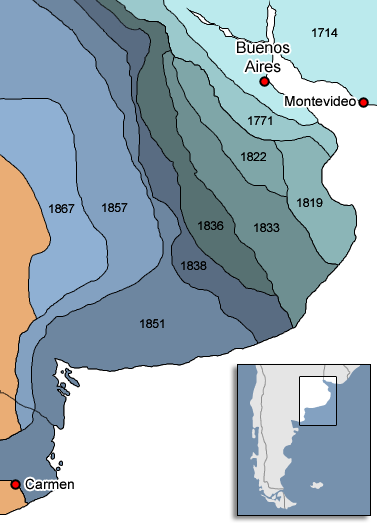Yes, and look at how South Africa evolved substantially as a result. British imperialism made things worse.
I think that South Africa is even more complicated a case than Argentina for the simple reason that whereas in Argentina the inhabitants are mainly European (especially with massive immigration around the turn of the 20th century just like OTL) from either linguistic group and the indigenous people are reduced to a small minority, in South Africa only a minority are white (either Afrikaner or Anglo) and the majority are non-white, most of the latter being blacks of Xhosa, Zulu, Sotho, Tswana, or other ethnicities. In other words, a British Argentina only has to deal with Spanish rebellions (plus some Indian attacks), whereas the British in South Africa had to deal with Boer
and black African rebellions. I therefore don't see a British Argentina having apartheid the way South Africa did, though there would be Anglo-Spanish tensions.
An even better analogy than South Africa, and certainly better than Canada/Quebec, might possibly be Ireland in general and, from the later 20th century, Northern Ireland in particular. Ireland/Northern Ireland has two main "white tribes" that have been mutually hostile even more than the Anglos and the French in Canada/Quebec, while at the same time there isn't a non-white majority.
In the case of Argentina, a country that is doing decently OTL and could have done much better with a few minor tweaks, the introduction of British rule to Argentina adds multiple destabilizing factors to the country's trajectory. If this British Argentina, disunited as it may be, ever ascends, it will be fragile in doing so.
A few minor tweaks, as in with the OTL cultural heritage and 19th century history but that at least Peronism and maybe also the 1930 coup are butterflied away?
Also, if a British Argentina is fragile in ascending, then at the very least there's a British southern Pampas/Patagonia/Fireland (Tierra del Fuego), especially once the fearsome Indians are dealt with?!
Although, then again, Canada was kind of fragile in ascending too, albeit in a different way. There's no inherent geographic logic in having Newfoundland, the Maritimes, southern Quebec/Ontario, the Prairies, and British Columbia all belonging to one single country. Except that the original four provinces of Ontario, Quebec, New Brunswick, and Nova Scotia united in 1867 as a collection of remaining British colonies in North America especially in the wake of the US Civil War, plus there was a need to make a link to British Columbia (another North American British colony not in the US) by railroad.


